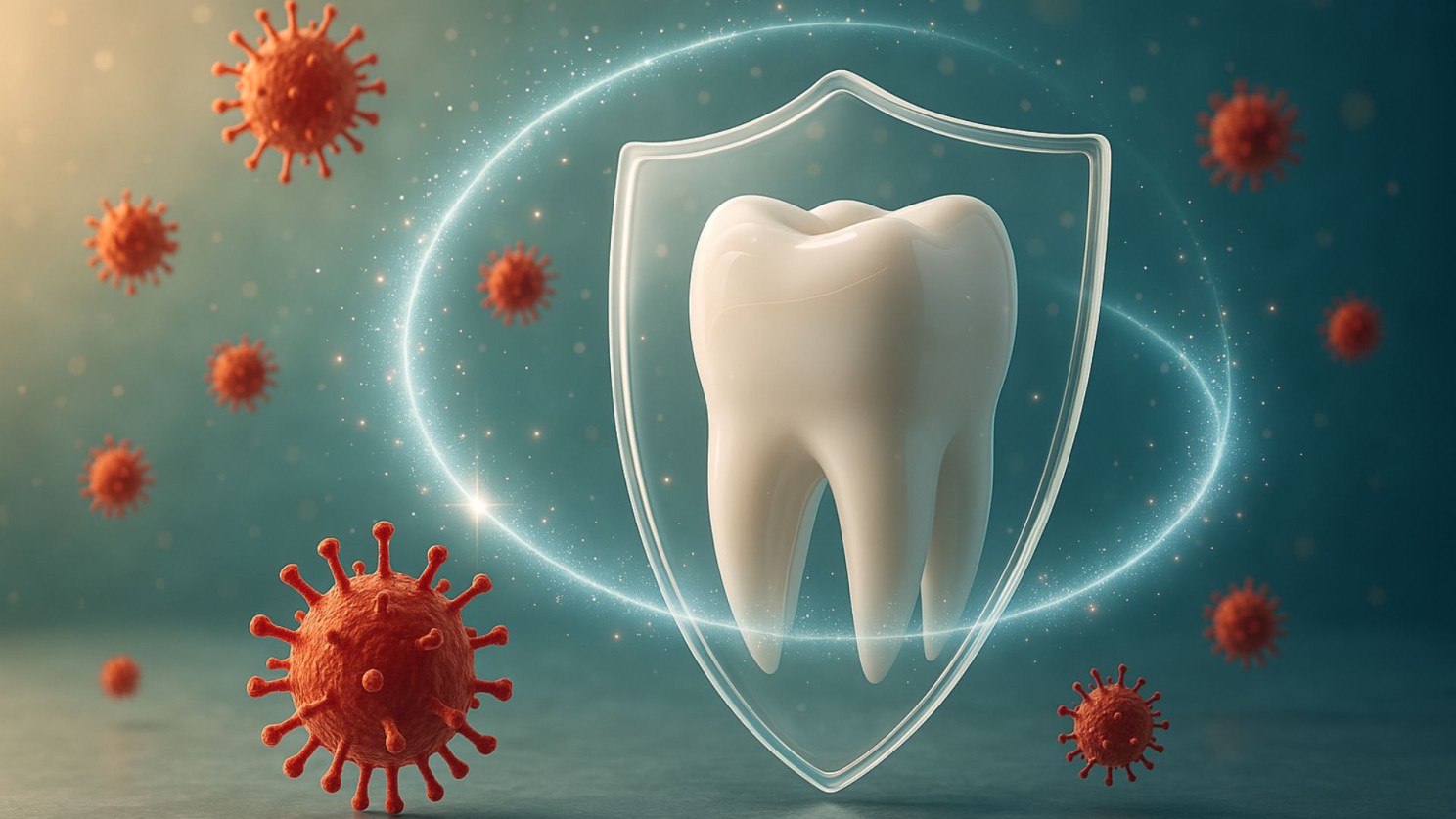Did you know your mouth is home to over 700 different species of bacteria? Most people might cringe at this or think it's gross but maintaining the right balance of these microscopic organisms could be the key to both preventing disease and enhancing your overall health. While most people think of oral health as simply preventing cavities and gum disease, research reveals that your oral microbiome (the complex ecosystem of microorganisms living in your mouth) influences everything from inflammation, cardiovascular health, respiratory wellness, and cognitive function throughout your entire body.
The oral microbiome is a diverse community of bacteria, viruses, fungi, and other microorganisms that live within your mouth. Unlike other parts of your body, your mouth provides a unique environment with different pH levels, oxygen availability, and nutrient sources across various locations from your teeth and gums to your tongue and throat. Different areas of your mouth create specialized environments that support different types of bacteria.
For example: the surfaces of your teeth host bacteria that thrive in oxygen-rich environments, whereas the deeper gum pockets provide a home for bacteria that flourish without oxygen. Meanwhile, your tongue hosts its own unique collection of microorganisms, and your saliva acts as a transport system that carries nutrients and bacteria throughout your mouth and body. When this ecosystem is balanced these microorganisms work together to protect your oral health and overall well-being.
Your oral ecosystem contains several different types of bacteria, each playing distinct roles:
Beneficial Bacteria: These are protective microorganisms that help maintain oral pH balance, which is important for preventing tooth decay and gum disease. They also compete with harmful bacteria for space and nutrients while supporting your overall immune system.
Opportunistic Bacteria: In a healthy mouth, these bacteria remain in check and pose little to no threat. However, when the ecosystem becomes imbalanced through factors like poor diet, stress, or inadequate oral care, they can multiply rapidly and contribute to serious health issues.
Biofilm Formation: Bacteria organize themselves into complex communities called biofilms (dental plaque). These biofilms can be protective when healthy but problematic when dominated by harmful species. This means that not all plaque is necessarily bad, but the type of bacteria within it determines whether it helps or harms your health.
Salivary Influence: Your saliva acts as the ecosystem's regulatory system. It naturally fights harmful bacteria with antimicrobial compounds while neutralizing acids that can damage your teeth and gums. Additionally, it feeds beneficial bacteria with the nutrients they need to flourish and washes away food particles to maintain a proper balance throughout your mouth.

Most people are unaware of the implications of an imbalanced oral microbiome and how it affects their overall health:
Cardiovascular Health: Research shows a strong connection between oral bacteria and heart disease. Certain oral bacteria can enter your bloodstream through inflamed gums, which could then contribute to arterial inflammation and increasing cardiovascular risk. Studies have found that people with gum disease have a 20-50% higher risk of developing heart disease.
Inflammatory Response: Your oral microbiome serves as a training ground for your immune system. An imbalanced oral microbiome can trigger chronic low-grade inflammation that affects your entire body. This could potentially contribute to conditions like diabetes, arthritis, metabolic disorders, inflammatory bowel disease (chronic inflammation of the digestive tract), and rheumatoid arthritis (autoimmune joint inflammation).
Respiratory Wellness: The mouth is the primary entry point for respiratory pathogens. A healthy oral microbiome helps defend against harmful bacteria and viruses that could cause respiratory infections like pneumonia, bronchitis, sinusitis, and upper respiratory tract infections. Conversely, an imbalanced oral microbiome can increase susceptibility to pneumonia and other respiratory conditions.
Systemic Disease Prevention: Emerging research links oral microbiome imbalances to various conditions including Alzheimer's disease, certain cancers, and autoimmune disorders. This research highlights the incredibly important role of your mouth and why it's crucial to keep it healthy.
Your mouth often provides early warning signals when your microbiome is out of balance. Watch out for these red flags:

When to See a Professional: It's recommended to get your teeth cleaned and examined typically every six months. If you experience multiple warning signs or notice persistent changes in your oral health, seek professional care sooner.
You can actively support a healthy oral microbiome through several approaches. Here are a few simple reminders for better oral health:
Oral Hygiene:
Diverse, Nutrient-Rich Diet:
Stress Management:
Avoid Overuse of Antimicrobials:

By taking care of this complex ecosystem through mindful oral care, proper nutrition, and stress management, you're not just investing in your dental health but supporting your entire body's present and future well-being. Remember, your mouth is the direct access point into your body, and the bacteria that live there are working around the clock to either support or break down your health!

More Info: At WellPro, we're developing an AI-native end-to-end clinical platform for personalized, preventative, and data-driven care designed to help clinicians deliver scalable, high-touch, and proactive care that truly empowers the patient.